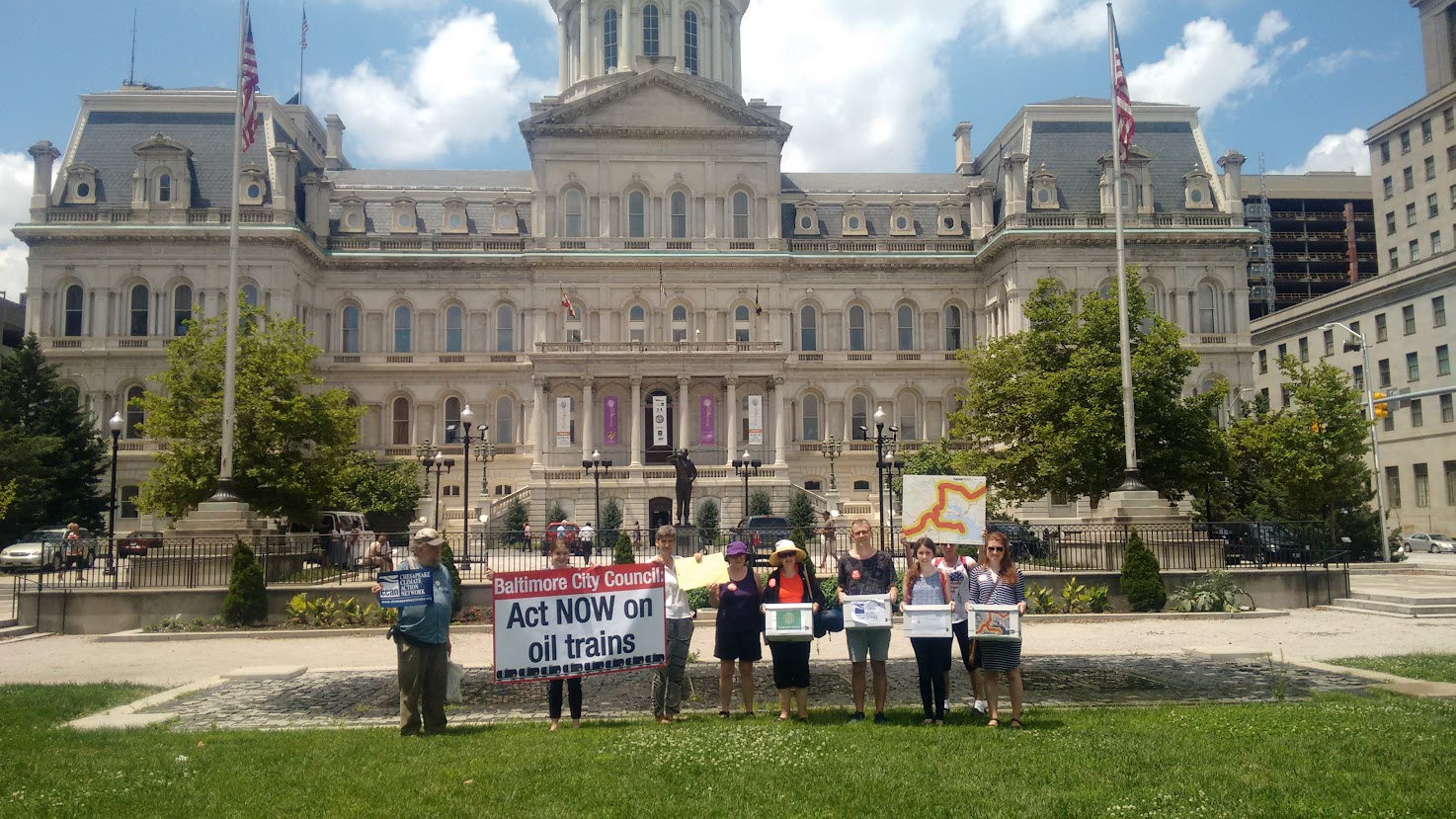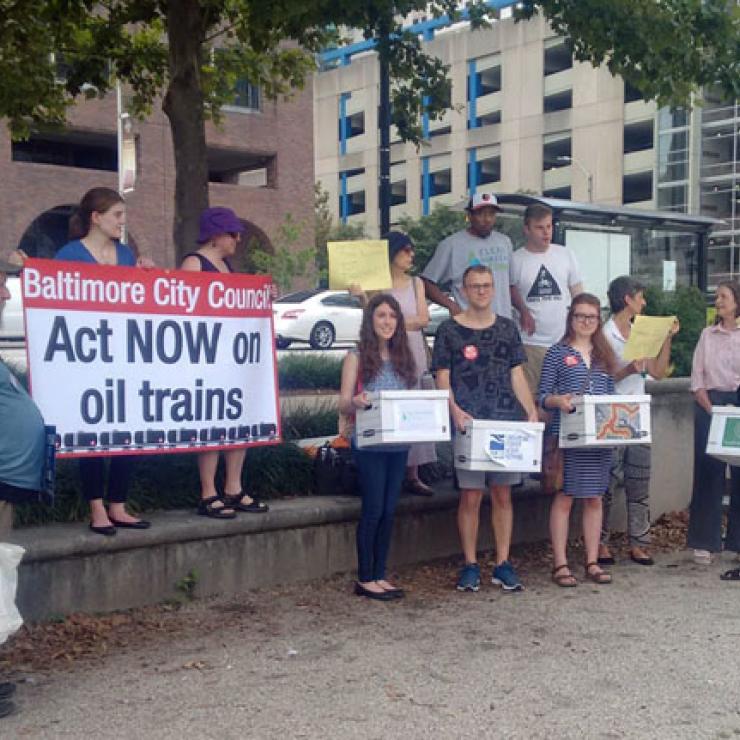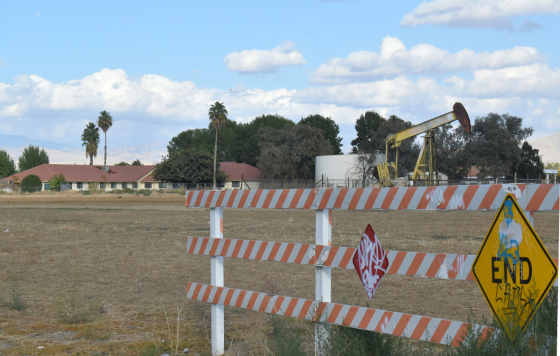
Wednesday, July 6th marked the third anniversary of the deadly oil train explosion in Lac-Mégantic, when 47 people lost their lives in the fires caused by train cars carrying crude oil derailing and breaching in the center of their town. In commemoration of this tragedy, over 60 communities across the continent put at risk by oil trains are holding vigils and protests this week to draw attention to the deadly risks of these shipments. In Washington DC, we joined with Stand, the Chesapeake Climate Action Network, and others to deliver a letter signed by over 150 organizations, elected officials, and first responders to President Obama demanding a ban on oil train shipments throughout the country.
In Baltimore, trains carrying crude oil pass beneath our downtown and alongside our communities, putting everything within a mile of the tracks at risk. If one of those trains derailed and punctured, the resulting explosion would impact at least a half-mile radius around the site of the derailment, possibly including our schools, hospitals, critical infrastructure, and blocks upon blocks upon blocks of our homes.

But when we approached City Hall, we had to wait for 15 minutes in 90-degree heat before being told that no one would accept our petitions. This was a confusing disappointment, but we won’t stop until the voices of these 2,000 residents are heard and the City takes action to protect us from oil trains. Learn more below, and then add your voice by emailing the City Council. Together, we will make sure that the tragedy three years ago in Lac-Mégantic is never repeated, in Baltimore or anywhere else.


